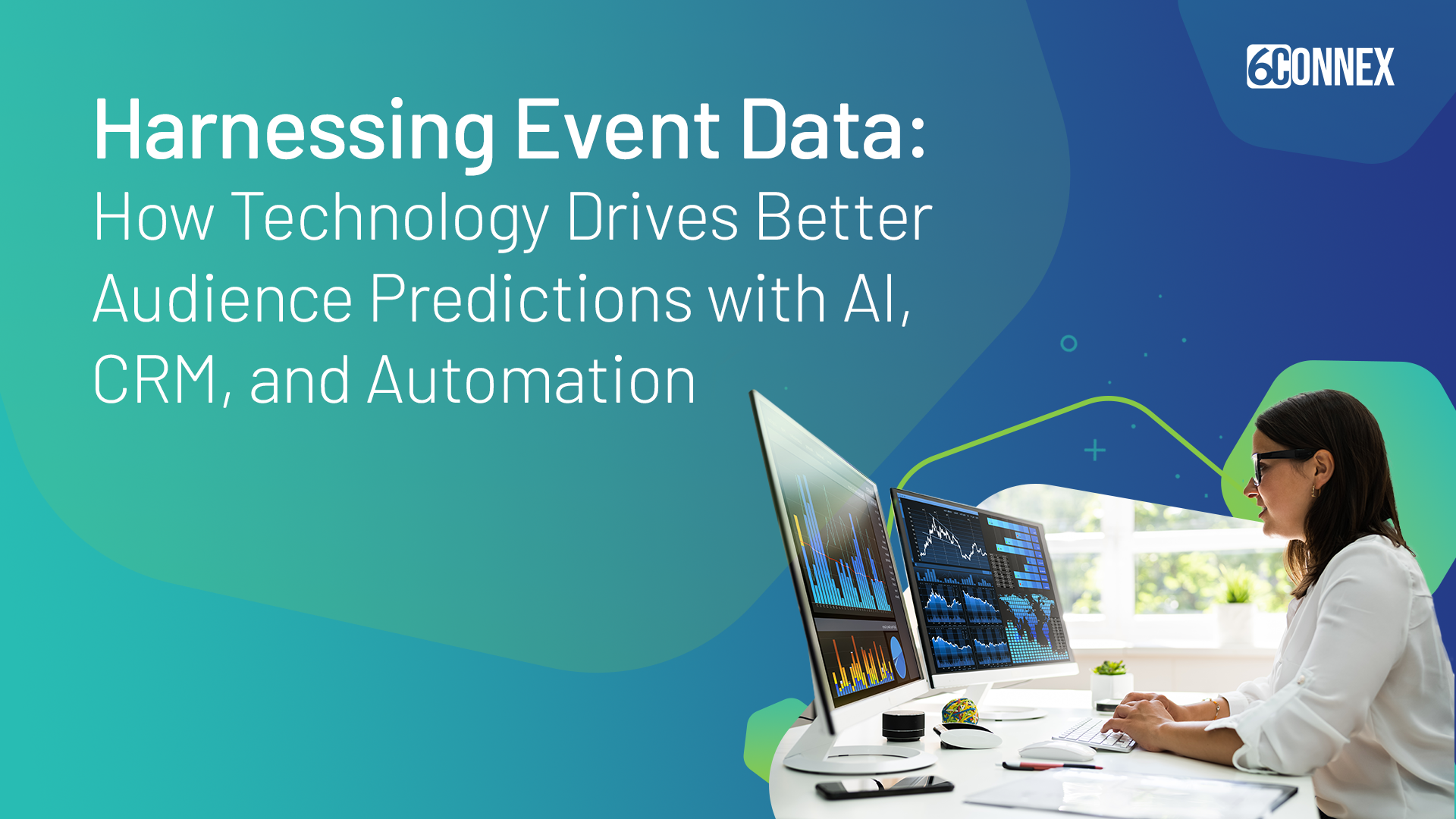Harnessing Event Data: How Technology Drives Better Audience Predictions with AI, CRM, and Automation
Joakim Jönsson
Oct 3, 2024 10:00:29 AM

In industries like sports, defining success can be relatively straightforward—breaking a world record or winning a match provides clear markers. However, in the world of events, success is often more elusive to define. Companies are increasingly turning to data to set these benchmarks, understanding that success varies depending on the event's goals.
Data is now at the heart of how organizations define and measure the success of their events. Whether the goal is generating new leads, building brand awareness, or growing customer engagement, event technology can offer the insights needed to gauge progress. The more data you collect, the clearer your definition of success becomes, helping you align event performance with broader business objectives.
Lead generation campaigns, in particular, can benefit from a data-driven approach. Traditional campaigns—like attending trade shows, seminars, or hosting online events—often result in a long list of leads. However, segmenting these leads can be challenging, as most are not yet sales-ready. By using event technology to gather detailed data, companies can better segment their audience into a pyramid of lead readiness, helping outreach teams focus on high-potential leads first.
Virtual events offer a wealth of data compared to traditional virtual seminars. Tracking participation in activities like treasure hunts or clicks on calls-to-action provides deeper insights into attendee behavior. In-person events also benefit from event technology, tracking actions like session attendance, ratings, questions asked, participation in polls, and survey feedback. This detailed data is invaluable for AI models, CRM systems, and marketing automation to predict and analyze audience behavior.
With the insights gathered from event technology, you can create a more targeted outreach strategy. By segmenting leads into different readiness levels, your outreach team can focus on the most promising leads first, improving their efficiency and confidence. Meanwhile, less-ready leads can be nurtured through personalized, ongoing engagement, ensuring they are ready when it’s time to buy.
To fully realize the power of event technology, seamless integration with AI models, CRM, and marketing automation systems is essential. This ensures that rich, detailed data flows across systems, helping teams make informed decisions faster. With fewer manual processes and shorter turnaround times, companies can focus on executing data-driven strategies that drive results.
The right event technology not only enhances your understanding of your audience but also enables you to make better predictions about their behavior and readiness. Whether you're running lead generation campaigns, internal communications events, or talent acquisition initiatives, leveraging data from events allows you to measure success, refine your strategies, and make smarter decisions across your organization.
6Connex is the leading provider of in-person, hybrid, and virtual event technology for enterprises worldwide. Our cloud-based product portfolio includes event management tools, in-person event apps, virtual venues, webinars, learning management, and more.
From internal meetings to large scale conferences, we allow you to engage and transform big ideas into real-world results.
425 Soledad St.
Suite #500
San Antonio, TX 78205
1.800.395.4702
Australia: +61.2.72294013
Brazil: +55.11.4375.3555
United Kingdom: +44.20.37447284
United States: +1.210.890.5769